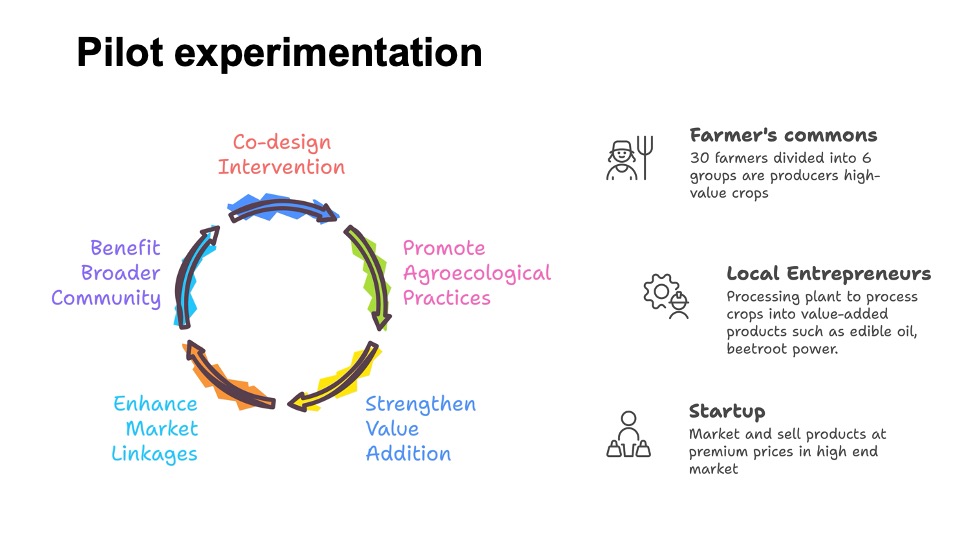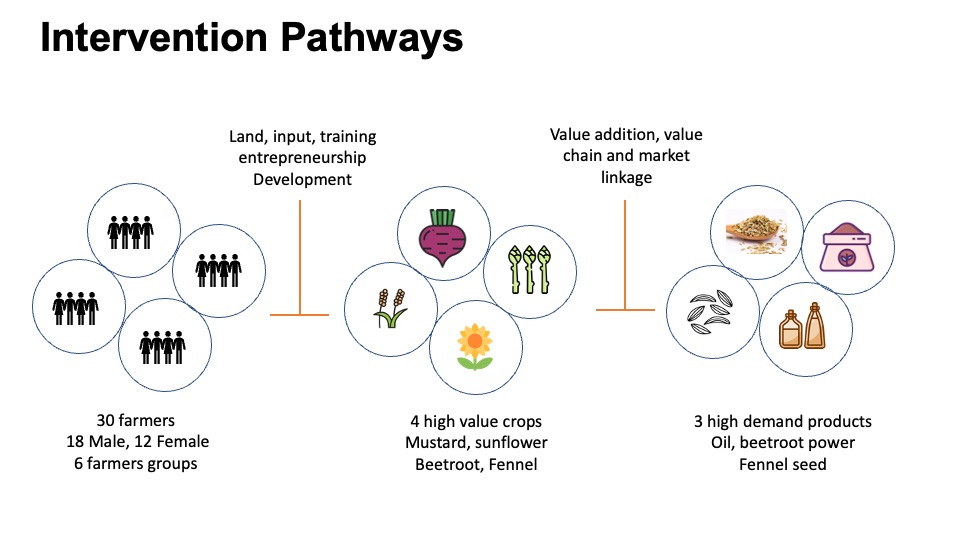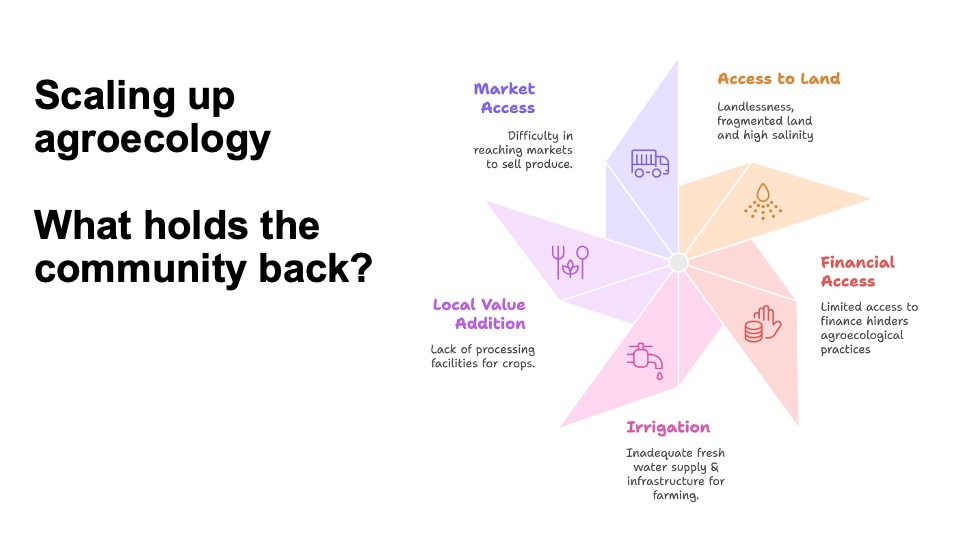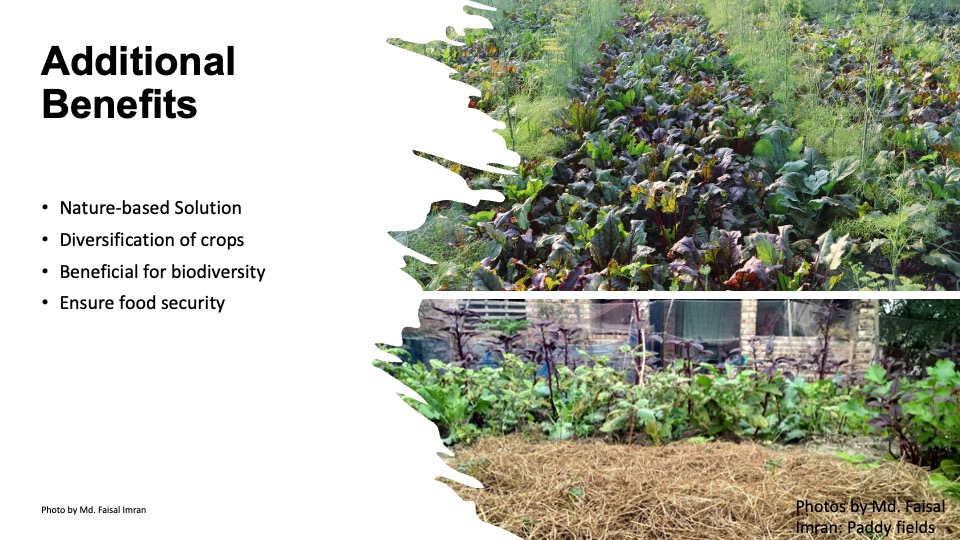Integrated Farming

In coastal Bangladesh, Agriculture is disrupted by salinity intrusion, tidal surges, poor soil health, water unavailability, cyclones and other climate change-induced disasters. Fragmented land, poor infrastructure, inefficient irrigation and policy failure further hinder agriculture. In Sundarbans areas, where subsistence farming is still the main source of livelihood for millions of people, reduced agriculture and loss in production pushes people further to the poverty line, and subsequently to migrate.
Collaborating with ULAB, the SAJIDA Foundation is researching the efficacy and effectiveness of introducing climate-resilient integrated farming in Assasuni Upazila with the agenda of empowering communities with sustainable livelihoods.


Integrated farming
The team has developed a prototype design to initiate and provide technical support to community-based integrated farming by targeting a number of selected households in the union.
By consulting local communities and through planned and systematic activities such as procurement and distribution of fish fingerlings, feed, fertilizers and seeds, rainwater harvesting and storage provisions through the (re)excavation of private and cooperative ponds, the experimentation will be co-designed with rudimentary rounds of pilot testing.
Farmers will use stored rainwater to irrigate dry season crops (known as rabi crops in the local dialect, such as boro rice variety, other commercial crops, etc.) through this method.
The multiple benefits offered by integrated farming through coproduced knowledge and actions include reduction of salinity of the topsoil, making it more durable to the unpredictable and repeated shocks of climate change in the region.


Mixed farming
In contrast to mono cropping which is dominant in other part of Bangladesh, farmers in study area are experimenting with ‘mixed crop’, growing lots of different vegetables, and grain in one plot. This experimentation mimics the ‘trial and error’ approach.
“We are doing agriculture after decades, we don’t know which [crops] would grow better in this soil. So, we are planting a bit of this and bit of that and observing which one survive. Then next year we will plant that a bit more”
We have documented 71 different crops that the farmers have produced in one crop cycle year. Many farmers especially female producing lots of different vegetables in their homestead that they reported significantly reduce their food insecurity and market dependency. We observed homestead vegetable garden in every household of the study participants.
Some sort of ‘integrated’ farming is in practice among farmers. Where they combine fresh water fish, rice and vegetable in one single system and reported the reduction of inputs and increased in production.


Flexible Collaboration
Our research indicates that communities heavy depends of flexible cooperation and collaboration in their daily lives and in dealing the impact of disruptive risks. This ‘flexible cooperation’ extend beyond interpersonal reciprocal relation, rooted deep into social fabrics and cultural norms enforcing social harmony that provides common platform to share support and resources. This practice function as most fundamental social force embedded into all other social relations and influence all other institutional functions at social level. we have seen these practices at individual level as well group level during our field work.

Trainings
The ULAB-SAJIDA collaboration is anchored with the aim of systematically training and supporting villagers in the use of good quality salt-tolerant seed varieties involving government officials from the departments of fisheries and agriculture to revive traditional community knowledge and adaptive practices.
